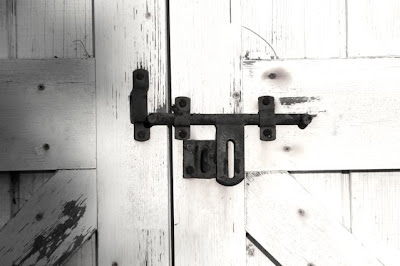Very slowly this time, I re-read Mark Richard's
House of Prayer No. 2, the memoir we'll be discussing in class tomorrow. We'll be talking about time—its compression, its meaningfulness and meaninglessness, the power of the future progressive tense, the seduction of the future perfect—and how Richard both elides and dwells to keep us within the frame of his memoiristic purpose. I am looking forward to that conversation.
As I read, I again and again stumbled across passages that have peculiar and particular relevance to me right now. Good books do this. Good books speak directly to you.
How about this, from the immaculate
House of Prayer No. 2?
You are also interested in how you can create tension in texts between what meanings the words are conveying on the page and what the sounds of the words themselves are evoking in a reader. Why are certain melodies sad? Melodies without words.
The worst part about teaching at Penn is the decision-making part. As in: I have to study my swollen, swaying, triple-stacked wall of memoirs and decide which few (only a few!) to put on the syllabus. Sure, we're reading all semester long—theory, excerpts, slices of things. But which memoirs will we read, cover to cover? Which books will my students carry forward, in their own libraries?
I have, just now, made at least one pairing decision:
House of Prayer No. 2 (Mark Richard) and
The Duke of Deception (Geoffrey Wolff). I cannot wait to read both these books again.
You get saddened up, out here in life, by all the hum drum and the done before, the standard issue, the colors shimmed off to gray. So that when you pick up a book like
House of Prayer No. 2, a Mark Richard memoir rendered in meaty second-person prose, you let a smile crawl across your face and stay. Just two weeks before, in my creative nonfiction class at Penn, a student had asked if memoir had to be, by definition was, a first-person accounting. Tuesday I'll head back to class with
House of Prayer No. 2 in my bag. Second person works, I'll say. It works, if you're Mark Richard.
Well, first, you have to have a life like his to tell a true story story like this, and I'm pretty sure no one else has lived precisely Richard's way—poor and "special," his hips whacked out, his days (or far too many of them) stuck in the hopeless heat of a hospital for crippled children, and, afterward, everything you hope your child doesn't do, doesn't get involved with, doesn't risk—all that done, by Richard, on his way to growing up, on his way to faith and writing. Jeepers, where to start? With the snakes he battled, with the things he stole, with the run-down houses he thieved into, with the ship captains and the small-time jail stints, with running off to Cuba, with running more (but hardly running, with those hips), drunk and from the law? Smart kid, this Richard, big reader, fine writer with stories to tell, but so intent on his own dissipation for so long that if it hadn't been for editors and other writers mailing Richard's stories to contests and all, who knows what would have happened to this guy and his talent? Who knows? Richard was living one crazy thing after another, no plan, and no plan takes him, eventually, to New York, Nan Talese, Pen/Hemingway Award, Norman Mailer, Hollywood, and a bunch of other stuff you'll have to read about in the book.
Read about it, second person. Read about it, time flying or time going slow, and every sentence so rich with things you haven't seen before. Or, at least, I haven't. Call me sheltered.
I folded down pages to share with you. I am having a devil of a time deciding. All right, here. A paragraph plucked from Richard's early wacky newspaper days—a tame paragraph, as this book goes, but a little show and tell of Richard's rhythms, his capacity, despite it all, for fun. One thing leading to another. Second person.
Overall it's a good place, and you fill the pages with your name and several of your pseudonyms. You cover the world's largest naval base and its air wings, NATO, the shipyards, the weapons centers, and anything else that interests you, and it all does. You interview admirals and senators, enlisted men, pilots, and junior intelligence officers in their crisp khaki shirts whom you talk into taking you into the restricted areas down in Dam Neck. You write editorials for the Op-Ed page, and you write scathing letters under fake names back to yourself, and you write letters the next week in answer to those, and you feel like Mark Twain, and it's a lot of fun to feel like Mark Twain.






I have always had trouble with that future progressive tense.